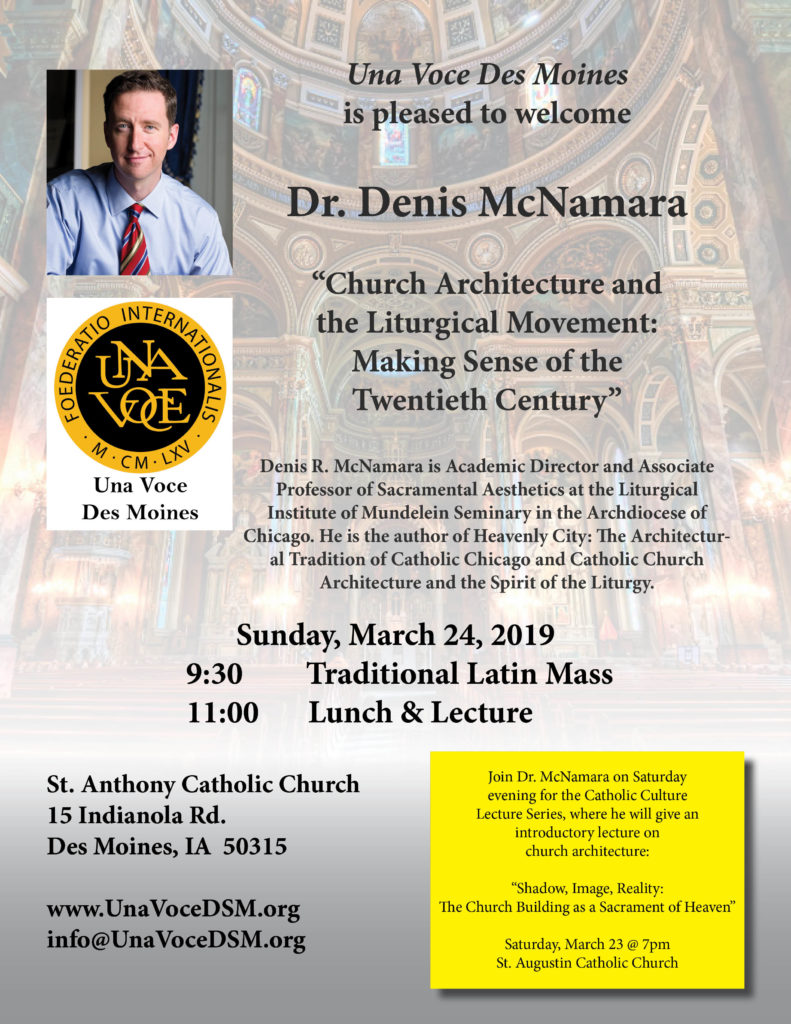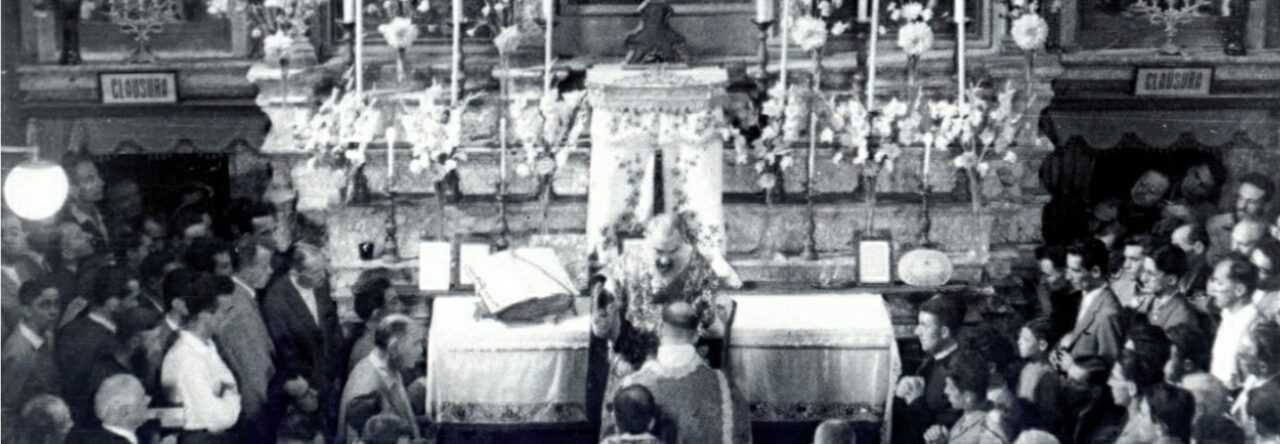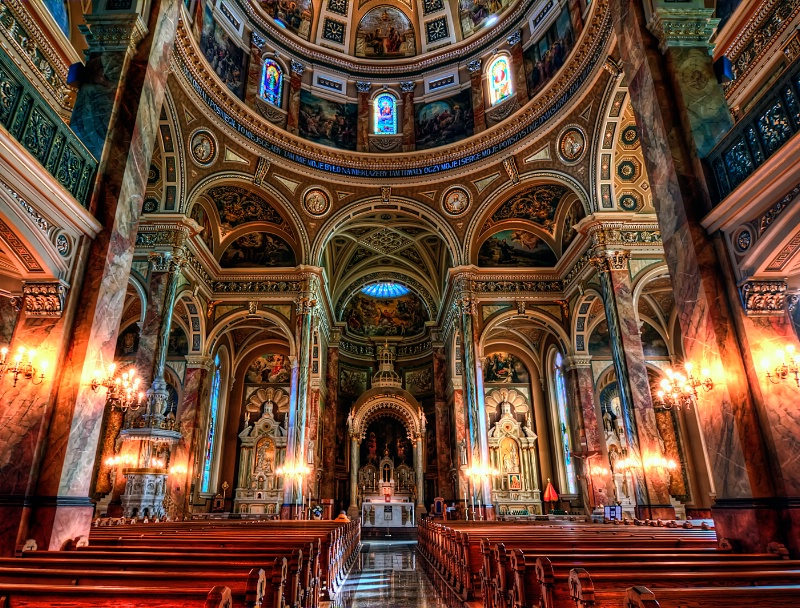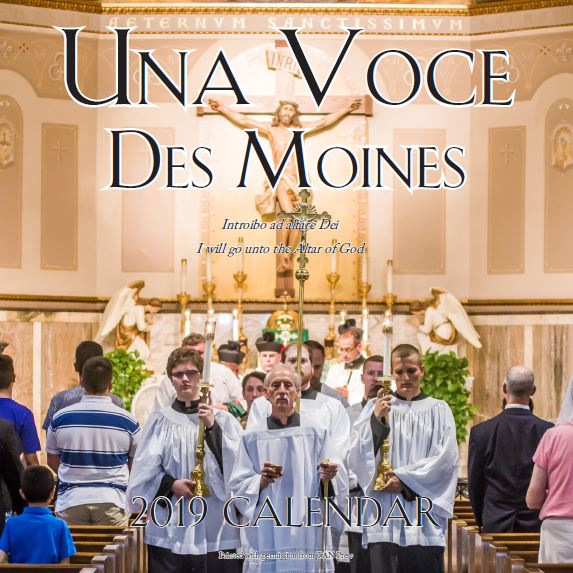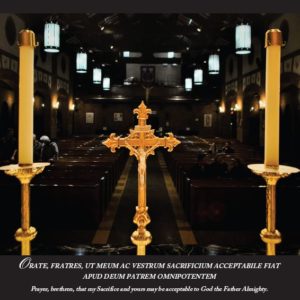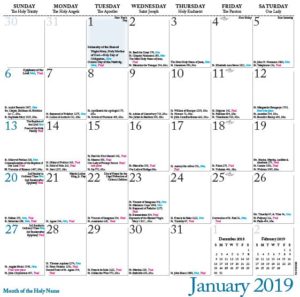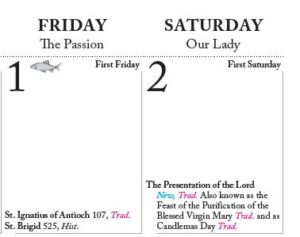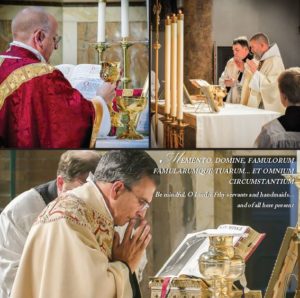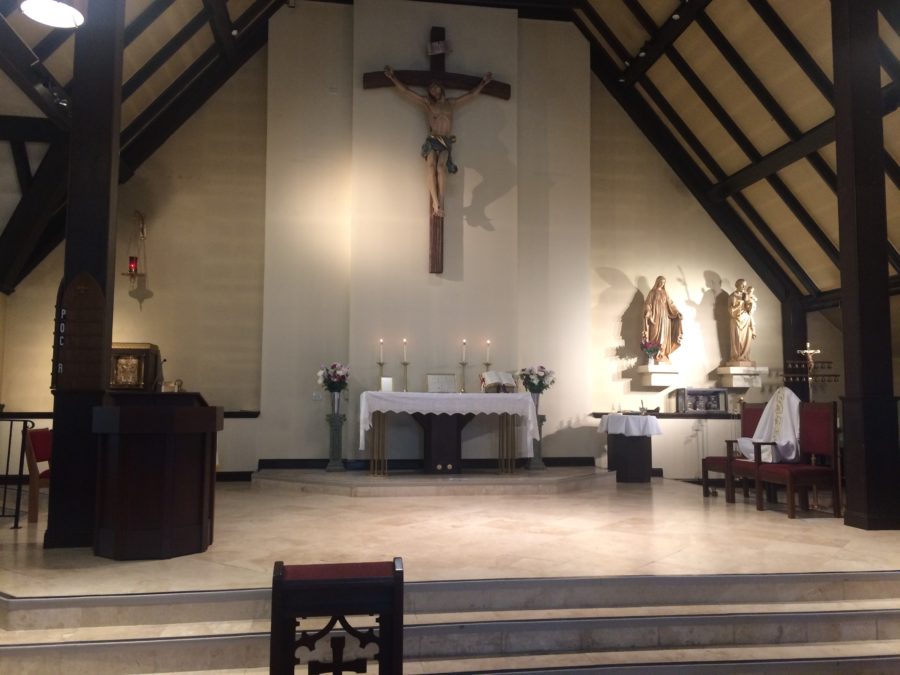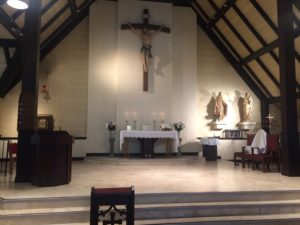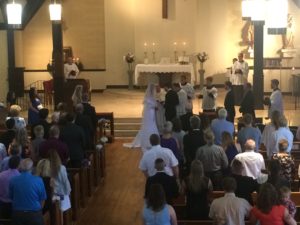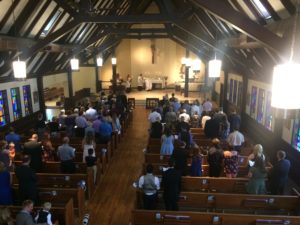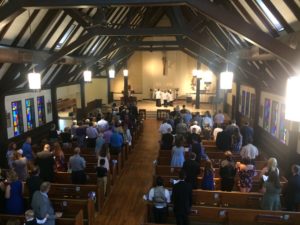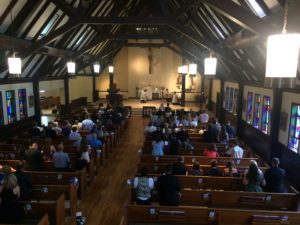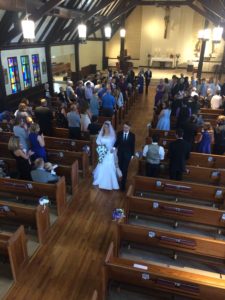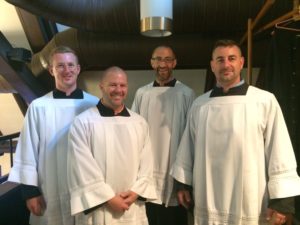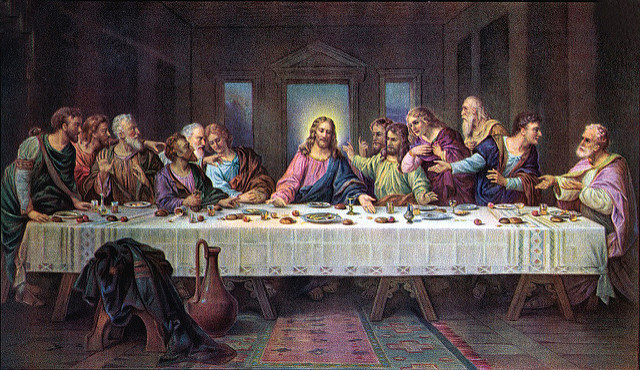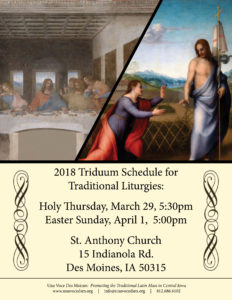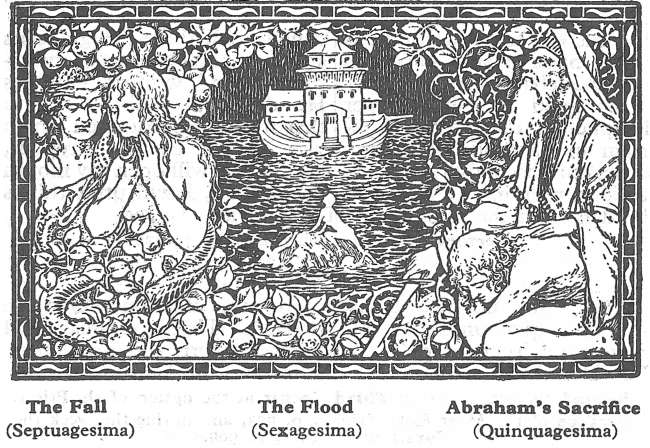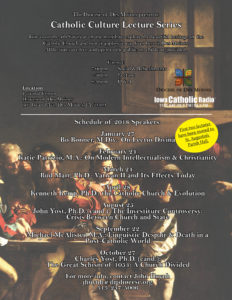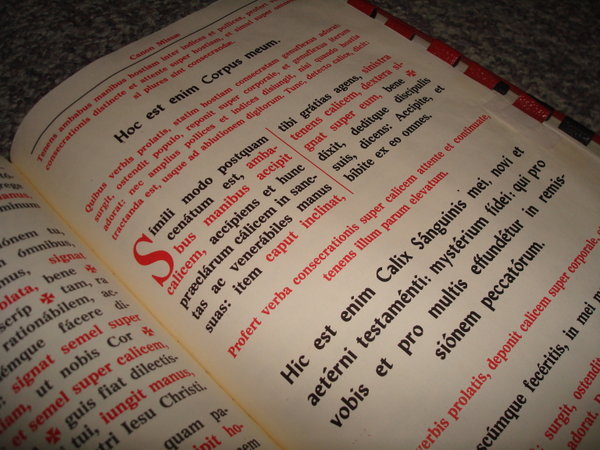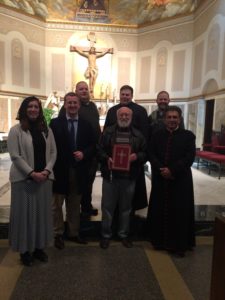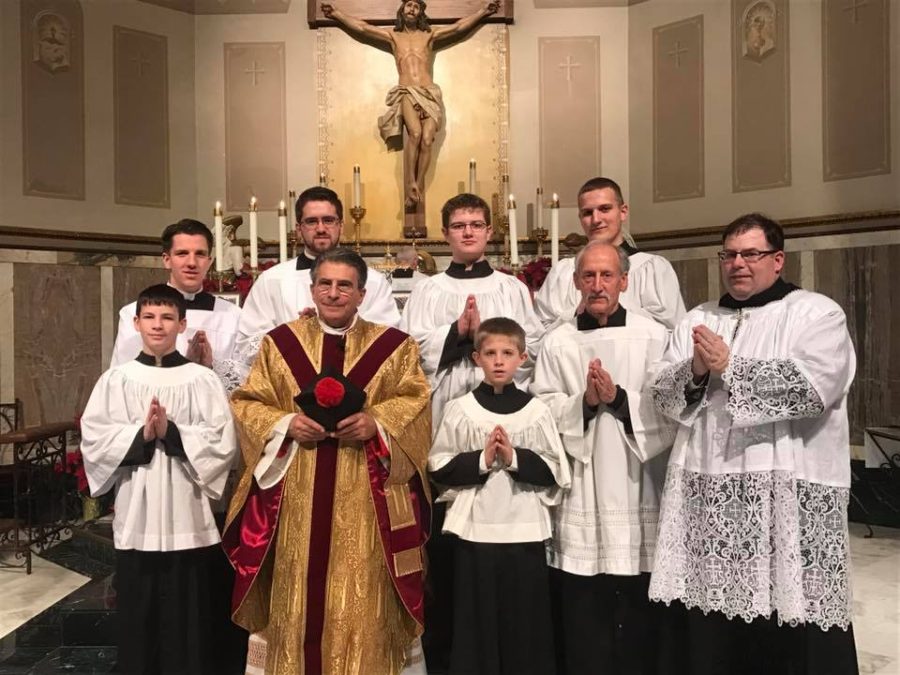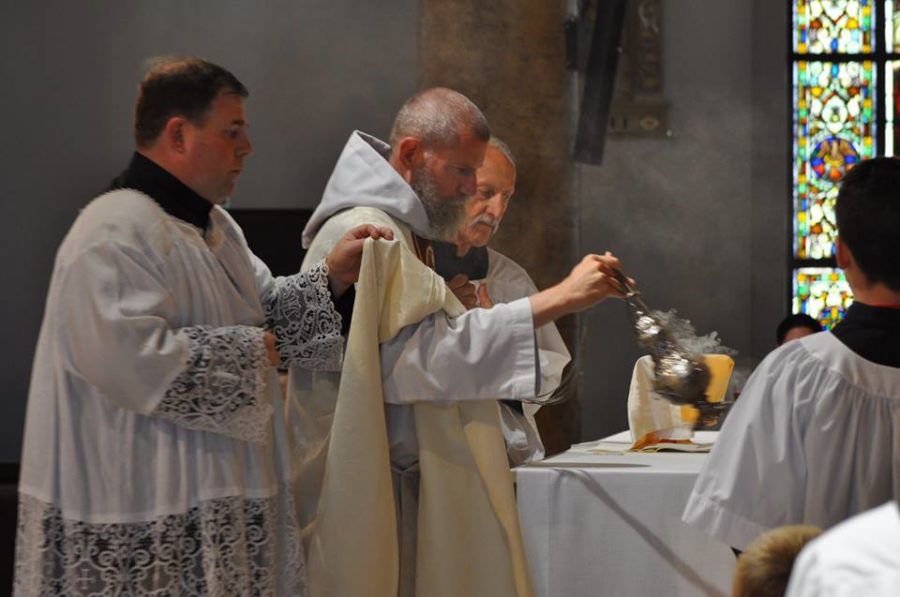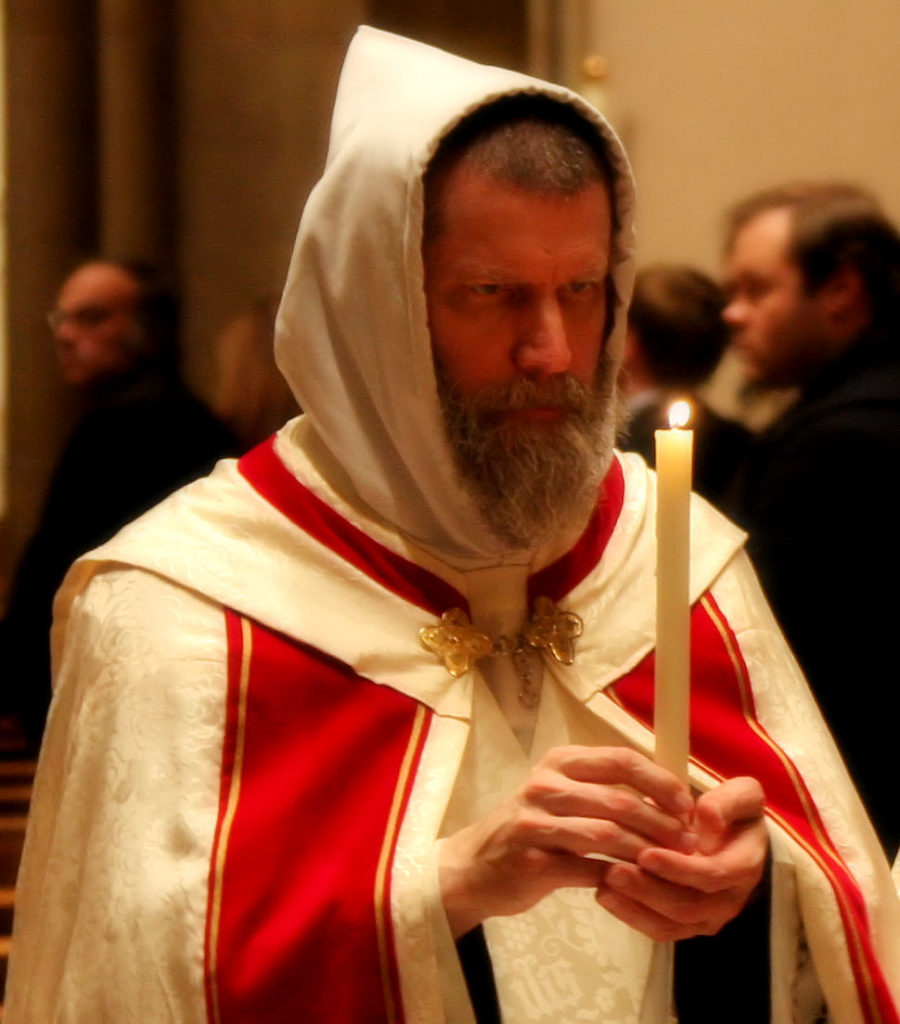(Article taken from an interview conducted by Regina Magazine with Dr. Joseph Shaw, Chairman of the Latin Mass Society of England and Wales.)
By Anna-Maria Vesey
Some of REGINA’s readers don’t attend a Traditional Latin Mass, but are, well, curious. Many are keen to experience for themselves why it is that so many young people and families are enthusiastic about this ancient Mass.
But something is holding them back. Often, Catholics with kids wonder: if they struggle with misbehaving children at a Novus Ordo Mass, won’t their kids be too noisy, fidgety, distracted or even unwelcome at a Latin Mass?
REGINA’s Anna-Maria Vesey recently sat down to discuss this hot topic with a man who is eminently qualified to respond. Not only is he the head of the Latin Mass Society of England and Wales, but Oxford University professor Joseph Shaw is the hands-on father of seven young children.
REGINA: With all its formality, are children welcome at the Traditional Latin Mass?
JOSEPH SHAW: There is such a thing as hostility to families and children in some churches, but this is much more common at the Ordinary Form than it is at the Traditional Mass, where there is a noticeably higher proportion of children present. This is partly because of larger families, and partly because the Traditional Mass is sought out by young parents. The sour looks and tut-tutting one gets as a parent trying to manage small children at Mass generally come from people, usually lay people but occasionally priests, who aren’t used to seeing children at Mass. People who go regularly to the TLM are that much more likely to be used to them.
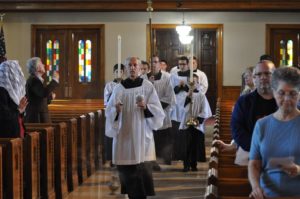
REGINA: What do you say to parents with young children who are considering attending a Latin Mass?
JOSEPH SHAW: So my first message to parents is that you’ll find more fellow-feeling and sympathy at the Latin Mass than you may be used to at your usual parish Mass, especially if your parish has tried to push children into a sort of kiddies’ ghetto, with ‘children’s Masses,’, ‘children’s liturgy’, and ‘crying rooms’. These things have the effect of making many parishes’ main Masses children-free zones.
REGINA: “Kiddies’ ghetto”?
JOSEPH SHAW: Yes. In the kiddies’ ghetto itself you get not tut-tutting but, all too often, a feeling by many of the children, and even some of their parents, that there is no need to make any effort to maintain a prayerful atmosphere. In that situation children are never going to learn what kind of behaviour is appropriate at Mass.
REGINA: What do you suggest, instead?
JOSEPH SHAW: The ideal situation, to help parents teach their children how to behave appropriately, is a Mass where there is an atmosphere to pick up on and examples to follow: not a zoo-like atmosphere, not a church full of tut-tutting old people, and not behind a sound-proof glass screen.
REGINA: How should one prepare to engage with the Latin liturgy for the first time?
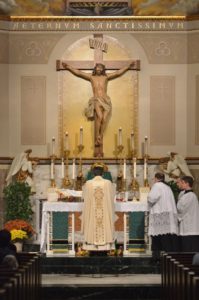
JOSEPH SHAW: There is nothing special you need to do. The liturgy is not a test for which you should study: it is an experience. If you want to get the most out of it, you may want to learn more about it, but you have to have the experience first, and you have to have it repeatedly.
REGINA: And the children?
JOSEPH SHAW: Children’s general education in the Faith, at home and at school, will help, but they should be getting this whatever kind of Mass you are attending.
First, children should be taking part in family prayers. If you want to teach children to get used to kneeling and being quiet and recollected, ten minutes’ practice a day is a lot more effective than an hour once a week.
Secondly, every catechism and Religious Instruction course includes material on the nature of the Mass and the other sacraments. Some catechisms and courses do this better than others, naturally.
REGINA: And what about the music?
JOSEPH SHAW: It is probably too much to expect your friendly local Catholic school to teach your children Latin and Gregorian Chant, but it should be: they are every Western Catholic’s birthright.
REGINA: How do we learn about what’s going on in a Latin Mass?
JOSEPH SHAW: If you do make the Latin Mass your regular Mass, there are lots of excellent books available for children of different ages to look at during Mass, and to read and have read to them at home. They will help your children (and perhaps you too) to understand more exactly what is happening at each stage, and what the ceremonies signify. As the children grow older there are hand missals with the readings and other texts for each Mass, prayers for personal use, and beautiful pictures.
REGINA: Sounds lovely!
JOSEPH SHAW: I would not wish to place too much emphasis on these books, however. One does not go to church in order to read a book: one can do that at home. We attend Mass in order to take part in the Mass, which means looking at what is happening, and listening to the chants, in a spirit of prayerful contemplation. You can’t teach your children prayerful contemplation from a book. The Mass will teach it to them: as Pope Benedict said, the liturgy is a school of prayer.
REGINA: What would you advise anyone thinking about attending the Traditional Mass for the first time?
JOSEPH SHAW: If you have the choice, go to a Sung Mass. Low Mass is a wonderful experience, but it takes more getting used to. The music at Sung Mass, if it is done well, adds an extra level of beauty to the Mass, and an extra way to engage with it. If they are singing Chant, children attending regularly can with a little encouragement easily learn the ‘Ordinary’ Chants (Kyrie, Sanctus, Agnus) and join in.
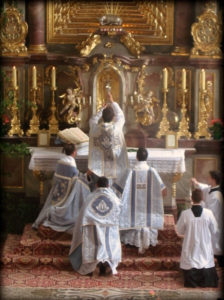
REGINA: What advice would you give parents to help them keep their children focused whilst at the Mass?
JOSEPH SHAW: What parents need to do, and do actually do, is not any different in the Traditional Mass, though the Traditional Mass offers some advantages in doing it.
Infants in Mass just need to be happy, or asleep, if they are not to disturb their parents and others, and if they are unhappy because they need something, parents do their best to give it to them. Sometimes what they need is a breath of fresh air, so you take them outside.
When they are a bit older, as toddlers, they can play with toys, stickers, or colouring in. When they are older still, you can start pointing out key moments in the Mass to them, like the Consecration. This becomes more important as they prepare for First Holy Communion, for which they’ll also be getting some preparation outside Mass. Gradually, they start attending to the Mass in the way that adults do. When they can read fluently, they can benefit from books already mentioned. To repeat, this is the same whatever Form the Mass is, and parents shouldn’t imagine that there are any special problems or requirements at the Traditional Mass.
REGINA: What is different about the Traditional Mass in terms of the parents’ job, whatever the age of their children?
JOSEPH SHAW: It’s easier.
REGINA: Really?
JOSEPH SHAW: For the youngest children, being calm and quiet is easier because they are in a calm and quiet environment, and parents often say that their young children behave better at the Latin Mass. In one of his columns in the UK’s Catholic Herald, Fr Tim Finigan addressed parents’ question about how to encourage their young children to be quiet in Mass, with the simple advice: ‘Take them to a quieter Mass.’
REGINA: Some may call that counter-intuitive for small children.
JOSEPH SHAW: There is an attitude that, because one can never guarantee one’s children won’t make any noise, they will disturb people more at a quiet Mass, so parents with small children belong at a noisy Mass where they won’t make things much worse than they already are.
This is a counsel of despair. Teachers get children, eventually, to be quiet in class; parents teach their children to behave at their grandparents’; you have to stop your children climbing the rigging when on a ferry. Children learn these things because they must. Mass is no different.
REGINA: And when they get older?
JOSEPH SHAW: When you want to start pointing things out to older children, then the Traditional Mass has another great advantage: the ceremonies are much more dramatic and expressive than in the Novus Ordo. The traditional Consecration, with its associated genuflections, elevations, bells, and incense, developed at a time when lay Catholics went infrequently to Communion, and it is designed to facilitate a participation in Holy Communion not only by physical reception but by looking, gazing, and by an interior intention. Thus it is ideally suited to children who haven’t yet had their First Communion. Parents can encourage their children to make an interior act of Faith (‘My Lord and my God’), and a formal or informal Spiritual Communion at this point, or when the priest receives.
REGINA: Ah, yes. There does seem to be more drama, if that’s the right word.
JOSEPH SHAW: There are many other dramatic and expressive moments in Mass which parents can point out, such as the genuflections in the Creed and the Last Gospel, and when the priest shows the congregation the consecrated host (‘Ecce Agnus Dei’). There is no need to draw children’s attention to everything every time: you can just point some out every now and then. Children, like adults, must be allowed to participate in the Mass with their own thoughts and prayers.
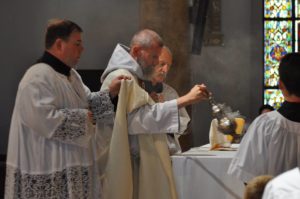
REGINA: People may wonder what children can get out of the Latin verbiage and complex ceremonies which they will be experiencing in the Traditional Mass?
JOSEPH SHAW: They certainly don’t get much out of the vernacular texts they experience at the Ordinary Form. From the laity’s point of view, this resembles a lecture: a torrent of words. Something less calculated to engage children’s attention would be difficult to imagine. Children naturally have limited verbal skills, and even adults struggle to pay attention and to understand a long text delivered orally. The multiplicity of options and the multi-year lectionary are designed to prevent many of these texts becoming familiar, in case they would be boring, but this again makes them harder to follow.
REGINA: Yes, that’s an interesting point. The Novus Ordo IS very focused on talking.
JOSEPH SHAW: The difficulty here is that the vernacular Mass attempts to do almost all its communication using words. The Traditional Mass communicates through a full range of means, using atmosphere, beautiful and complex vestments and church furnishings, visually striking ceremonies, incense, special forms of music, and above all the dignity and beauty of a sacred language, to convey the central message of the liturgy: the supernatural importance and dignity of Sacrament and Sacrifice. Since you can’t get all that much through to children using words alone, this means the ancient Mass has a considerable advantage.
REGINA: You have written about the role of altar boys in the TLM. Does their presence have any effect on the male children attending, do you think?
JOSEPH SHAW: Another advantage the Traditional Mass has is in relation to boys serving. This is not so attractive in the Ordinary Form, where servers do not play such an important or interesting role, and where serving has in many places become a very female-dominated activity. At the Traditional Mass it can have an extraordinary effect on little boys, who can find it more difficult than girls to sit still and quiet in the congregation for long periods. The discipline of serving, and its close involvement with the ceremonies, gives them a new angle on Mass, and they often become rather enthusiastic about it.
REGINA: Any final words?
JOSEPH SHAW: What is most important, however, is not how many facts children know about the Mass, or even about the catechism, but the encounter with God which the liturgy makes possible.
